Chameleon People - [18]
Once we were installed on the sofa with a cup of coffee in one hand and holding each other’s hand in the other, we carried on discussing the case.
‘Per Johan Fredriksen was also a bit of a mystery in terms of his politics,’ she said.
I squeezed her hand and asked her to elaborate.
‘He is part of the richest and most conservative group in the Centre Party, and is sometimes said to be right of even the Conservatives. Which is not a compliment in my circles. But he would take completely different stances on different issues, so he has also been called left of Labour. He was deemed to be a very important man for the no campaign, tactically, because he could potentially influence a number of the rich Conservatives.’
‘But all that has nothing to do with the murder case, surely,’ I joked.
Miriam was suddenly very still. She looked out of the window and her hand trembled faintly in mine.
‘Surely it can’t? People in Norway do not kill each other for their political persuasions,’ I said, trying to reassure her.
Miriam carried on looking out of the window when she finally answered. ‘Three months ago, I would have said no and laughed. But now I am not so sure. There are a lot of powerful and frightening emotions out there in the dark at the moment. I have been called the most incredible things by men in suits, and the day before yesterday an old woman spat at me when I was manning the stand. Parents and children have stopped speaking to each other and a lot of people are worried about their partners and their jobs. I don’t think anyone would kill in connection with an election in Norway, but I’m not so sure any more that some fanatic or other might not kill in connection with the referendum.’
We sat in silence and pondered this over our cups of coffee. I had assumed that the young murderer might be disturbed, but I hadn’t even considered that the killing could have been politically motivated.
I said that it was food for thought. Then I went out into the hall and got the photographs of the suspect which I put down on the table in front of us.
Miriam leaned forwards and stared at them intensely, but then shook her head. ‘He must be a very lonely boy, if no one has reported him missing. It all seems like a terrible tragedy. He’s not active in any of the political parties’ youth wings in Oslo, otherwise I would have known him. If his limp and speech impediment are so striking, I’m sure I would have known about him if he was active in any of the neighbouring constituencies.’ She fell silent, sat there and stared at the photographs. ‘I have never seen his face before. And yet, when I look at his pictures, I get the strange feeling that I’ve seen him in passing somewhere.’
I put my arm round her, kissed her on the cheek and asked her to think hard. She sat in deep concentration for about a minute before she said anything else.
‘I might be wrong, but do you remember the cyclist we saw a couple of times outside here at a distance last autumn?’
I had to think for a while myself before answering. It was not something I had given much thought to. But now that she mentioned it, it gradually came back to me that we had noticed a cyclist outside here a couple of times. He had just been standing with his bike further down the road. Close enough for us to see him and his bike, but too far away for us to see any details.
The first time we saw him, he cycled off after about thirty seconds. The second time, he stood there for longer, and Miriam had wondered as we went in whether we should ask if he needed help. Maybe he was lost or was having problems with his bike, she said. I turned back somewhat reluctantly, and walked towards the cyclist with her, but when we were only a matter of yards away, he hopped on his bike and disappeared down the hill.
‘It could certainly have been him. But that only makes things more bizarre, slightly crazy, in fact, if he was watching the flat already last autumn, only then to cycle all the way up here after he had murdered someone in Majorstuen.’
Miriam nodded. ‘It’s all very odd, no matter what. The strangest thing really is that he so purposefully sought you out after the murder.’
I took a couple of deep breaths, then I said: ‘Do you think I should ring the Genius of Frogner?’
‘The Genius of Frogner’ was Miriam’s nickname for Patricia. Not only had Miriam been the first to suggest that I should call Patricia in connection with my last murder investigation, she had actually phoned Patricia and persuaded her to help me. But now, when I suggested it myself, she seemed far less keen on the idea.
‘You can, of course, do as you wish and whatever you think will be best for the investigation. But I don’t think you should call her, not yet anyway. At the moment it seems most likely that there won’t be a major murder investigation, as the solution lies in the sad life of a disturbed young man. And in any case-’ She stopped mid-sentence and did not continue until I asked her to.
‘And in any case, she is a genius, of course, but you are much smarter than you appear to be when all you do is follow her instructions. You would have solved your last murder cases without her, it would just have taken a bit more time and you might have needed a bit more help from me. So I don’t think you should call her just yet, I think you should talk to me a bit more first.’
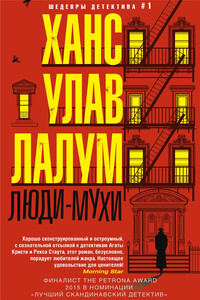
Убит бывший лидер норвежского Сопротивления и бывший член кабинета министров Харальд Олесен. Его тело обнаружено в запертой квартире, следов взлома нет, орудие убийства отсутствует. На звук выстрела к двери Олесена сбежались все соседи, но никого не увидели. Инспектор уголовного розыска Колбьёрн Кристиансен считает, что убийство, скорее всего, совершил кто-то из них. Более того, он полагает, что их показания лживы.
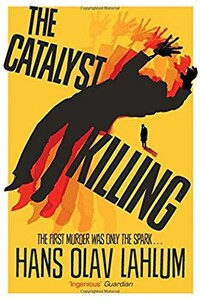
The third mystery in the hugely compelling, bestselling international crime series from Norway's answer to Agatha Christie, Hans Olav Lahlum, The Catalyst Killing will have you guessing to the final clue. The first murder was only the spark… 1970: Inspector Kolbjorn Kristiansen, known as K2, witnesses a young woman desperately trying to board a train only to have the doors close before her face. The next time he sees her, she is dead… As K2 investigates, with the help of his precocious young assistant Patricia, he discovers that the story behind Marie Morgenstierne's murder really began two years ago, when a group of politically active young people set out on a walking tour in the mountains.
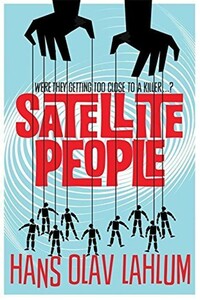
A gripping, evocative, and ingenious mystery which pays homage to Agatha Christie, Satellite People is the second Norwegian mystery in Hans Olav Lahlum's series. Oslo, 1969: When a wealthy man collapses and dies during a dinner party, Norwegian Police Inspector Kolbjorn Kristiansen, known as K2, is left shaken. For the victim, Magdalon Schelderup, a multimillionaire businessman and former resistance fighter, had contacted him only the day before, fearing for his life. It soon becomes clear that every one of Schelderup's 10 dinner guests is a suspect in the case.
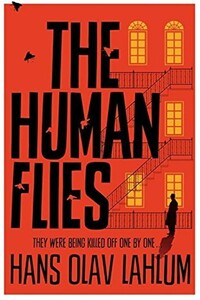
Oslo, 1968: ambitious young detective Inspector Kolbjorn Kristiansen is called to an apartment block, where a man has been found murdered. The victim, Harald Olesen, was a legendary hero of the Resistance during the Nazi occupation, and at first it is difficult to imagine who could have wanted him dead. But as Detective Inspector Kolbjorn Kristiansen (known as K2) begins to investigate, it seems clear that the murderer could only be one of Olesen's fellow tenants in the building. Soon, with the help of Patricia – a brilliant young woman confined to a wheelchair following a terrible accident – K2 will begin to untangle the web of lies surrounding Olesen's neighbors; each of whom, it seems, had their own reasons for wanting Olesen dead.
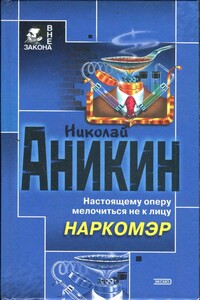
Тупик. Стена. Старый кирпич, обрывки паутины. А присмотреться — вроде следы вокруг. Может, отхожее место здесь, в глухом углу? Так нет, все чисто. Кто же сюда наведывается и зачем? И что охраняет тут охрана? Да вот эту стену и охраняет. Она, как выяснилось, с секретом: время от времени отъезжает в сторону. За ней цех. А в цеху производят под видом лекарства дурь. Полковник Кожемякин все это выведал. Но надо проникнуть внутрь и схватить за руку отравителей, наживающихся на здоровье собственного народа. А это будет потруднее…
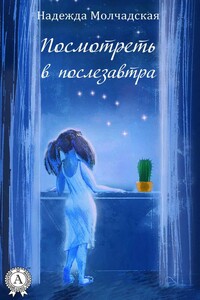
«Посмотреть в послезавтра» – остросюжетный роман-триллер Надежды Молчадской, главная изюминка которого – атмосфера таинственности и нарастающая интрига.Девушка по имени Венера впадает в кому при загадочных обстоятельствах. Спецслужбы переправляют ее из закрытого городка Нигдельск в Москву в спецклинику, где известный ученый пытается понять, что явилось причиной ее состояния. Его исследования приводят к неожиданным результатам: он обнаруживает, что их связывает тайна из его прошлого.
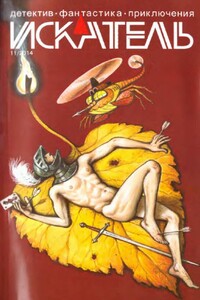
«ИСКАТЕЛЬ» — советский и российский литературный альманах. Издаётся с 1961 года. Публикует фантастические, приключенческие, детективные, военно-патриотические произведения, научно-популярные очерки и статьи. В 1961–1996 годах — литературное приложение к журналу «Вокруг света», с 1996 года — независимое издание.В 1961–1996 годах выходил шесть раз в год, в 1997–2002 годах — ежемесячно; с 2003 года выходит непериодически.Содержание:Анатолий Королев ПОЛИЦЕЙСКИЙ (повесть)Олег Быстров УКРАДИ МОЮ ЖИЗНЬ (окончание) (повесть)Владимир Лебедев ГОСТИ ИЗ НИОТКУДА.
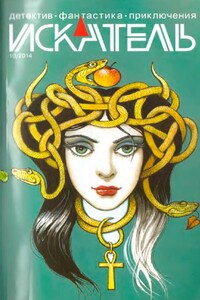
«ИСКАТЕЛЬ» — советский и российский литературный альманах. Издается с 1961 года. Публикует фантастические, приключенческие, детективные, военно-патриотические произведения, научно-популярные очерки и статьи. В 1961–1996 годах — литературное приложение к журналу «Вокруг света», с 1996 года — независимое издание.В 1961–1996 годах выходил шесть раз в год, в 1997–2002 годах — ежемесячно; с 2003 года выходит непериодически.Содержание:Олег Быстров УКРАДИ МОЮ ЖИЗНЬ (повесть);Петр Любестовский КЛЕТКА ДЛЯ НУТРИИ (повесть)
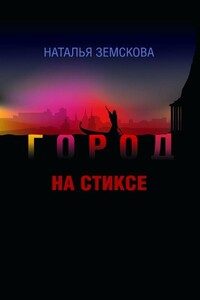
Наталья Земскова — журналист, театральный критик. В 2010 г. в издательстве «Астрель» (Санкт-Петербург) вышел её роман «Детородный возраст», который выдержал несколько переизданий. Остросюжетный роман «Город на Стиксе» — вторая книга писательницы. Молодая героиня, мечтает выйти замуж и уехать из забитого новостройками областного центра. Но вот у неё на глазах оживают тайны и легенды большого губернского города в центре России, судьбы талантливых людей, живущих рядом с нею. Роман «Город на Стиксе» — о выборе художника — провинция или столица? О том, чем рано или поздно приходится расплачиваться современному человеку, не верящему ни в Бога, ни в черта, а только в свой дар — за каждый неверный шаг.
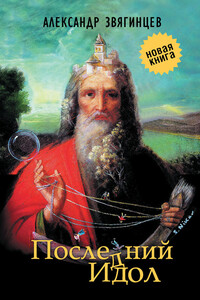
В сборник «Последний идол» вошли произведения Александра Звягинцева разных лет и разных жанров. Они объединены общей темой исторической памяти и личной ответственности человека в схватке со злом, которое порой предстает в самых неожиданных обличиях. Публикуются рассказы из циклов о делах следователей Багринцева и Северина, прокуроров Ольгина и Шип — уже известных читателям по сборнику Звягинцева «Кто-то из вас должен умереть!» (2012). Впервые увидит свет пьеса «Последний идол», а также цикл очерков писателя о событиях вокруг значительных фигур общественной и политической жизни России XIX–XX веков — от Петра Столыпина до Солженицына, от Александра Керенского до Льва Шейнина.